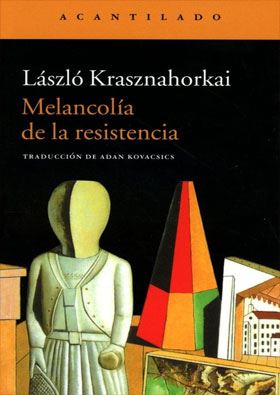

FAMILIA DE ESTRELLAS (BOL) (OF1)
Un homenaje de Danielle Steel a las mujeres fuertes que no se dejan vencer por las adversidades.
Kait Whittier escribe una columna en una revista femenina por la que se ha ganado el respeto de sus lectoras. Tras dos matrimonios fallidos, quiere evitar las complicaciones de volverse a enamorar. Para ella lo más importante son su trabajo y sus hijos, con los que disfruta enormemente a pesar de que ya están construyendo sus propios caminos.
Su vida da un giro inesperado cuando conoce a un productor de Los Çngeles que la anima a escribir para la televisión. Inspirándose en su abuela, una mujer indomable, Kait firma un guion gracias al que se zambulle en el glamuroso mundo de las estrellas.
A medida que los secretos de los miembros del reparto empiezan a salir a la luz, la amistad entre ellos crece. Y cuando Kait deba enfrentarse al dolor más grande que una madre pueda imaginar, contará con el apoyo incondicional de esta nueva familia.
300
FAMILIA DE PASCUAL DUARTE (BOL)
La primera novela de Camilo Jose Cela, hito en la literatura española de la posguerra.
La familia de Pascual Duarte vio la luz en 1942 y tuvo un enorme impacto en el panorama literario español del momento. Primer libro de Camilo Jose Cela, supuso un valioso punto de partida para la narrativa española de posguerra. La vida trágica de su arquetípico protagonista, gobernada por la más salvaje violencia, era un comentario indirecto sobre la barbarie padecida por los españoles durante la recien concluida Guerra Civil, al tiempo que daba carta de naturaleza a una tendencia literaria renovadora, luego conocida como "tremendismo".
800
FANG FICTION
he’s out for adventure. He’s out for blood.
Tess Rosenbloom is no stranger to the dark. An assault survivor and grad school dropout, Tess spends her nights managing a chic Brooklyn hotel and her days reading her favorite vampire novels, Blood Feud. She even dabbles in online conspiracies claiming Blood Feud is real—it’s fun to hunt for clues! But deep down, Tess doesn’t believe vampires actually exist . . . until one walks through her door.
It turns out the sexy villain of Blood Feud is trapped, and only Tess can rescue him. Eager to escape her life, Tess agrees to help, and soon she’s on a secret island where the sun never shines, surrounded by deadly vampires—and most terrifying of all, she's falling in love with one of them. (Meanwhile, back in New York, Tess’s estranged best friend is having a sapphic paranormal affair of her own.)
900
FANTASIA ALEMANA
Considerado uno de los mejores novelistas franceses de su generación, Philippe Claudel prosigue en Fantasía alemana la indagación de los recodos más sombríos y los complejos mecanismos que guían a los seres humanos iniciada en Almas grises y El informe de Brodeck. En este caso, a través de cinco relatos relacionados entre sí que componen una narración personal, oscura y descarnada, sobre Alemania, las dos guerras mundiales y la posguerra.
Fascinado por Alemania y los fantasmas del siglo XX que aún pueblan la realidad, Claudel nos ofrece, a través de unos escenarios misteriosos y el retrato profundo y áspero de los personajes, un libro inquietante, de gran virtuosismo y belleza, que es también una reflexión sobre las dolorosas heridas del nazismo y el lugar del hombre ante el horror.
995
FANTOMAS
Una amenaza sobrevuela París. Una figura sombría, espectral, capaz de cometer las peores villanías que se puedan imaginar. Un hombre sin identidad, con la pericia de convertirse en cualquiera; un maestro del disfraz, del robo, del secuestro, del chantaje, de la suplantación de identidades y del asesinato. Fantomas es, probablemente, el primer «supervillano» de la historia tal y como conocemos actualmente la denominación, el que siguió la estela de Arséne Lupin (creado por Maurice Leblanc seis años antes) pero llevándolo más lejos. Porque, aun siguiendo la estela de Arséne Lupin, desde el momento de su publicación, en febrero de 1911, Fantomas (y las treinta y una novelas en torno al personaje que rápidamente aparecieron) se convirtió en un fenómeno de masas, cuya popularidad trascendió todos los estratos sociales y culturales.
1,250
FAST Y RECKLESS
Mira Wentworth sabe que Will Hawley es sinónimo de problemas. Tontear con el nuevo piloto de la escudería que dirige su padre es una mala idea, sobre todo cuando todavía se está redimiendo de la última. Acaba de volver al paddock y su puesto como asistente está en juego. Por eso ha jurado no dejar que nada se interponga en su camino, ni siquiera un atractivo piloto de ojos azules y sonrisa encantadora.
DOS POLOS OPUESTOS
Después de casi echar por la borda su carrera en la Fórmula 1, Will tiene una segunda oportunidad: ha conseguido un asiento y está decidido a redimirse y hacerse con el pódium. Solo tiene que alejarse de las fiestas y limitarse a los titulares de la prensa deportiva. Sin embargo, sus buenos propósitos colisionan de lleno con todo lo que Mira despierta en él desde el momento en el que sus miradas se cruzan.
UN ROMANCE QUE TE ACELERARÁ EL CORAZÓN
1,550














